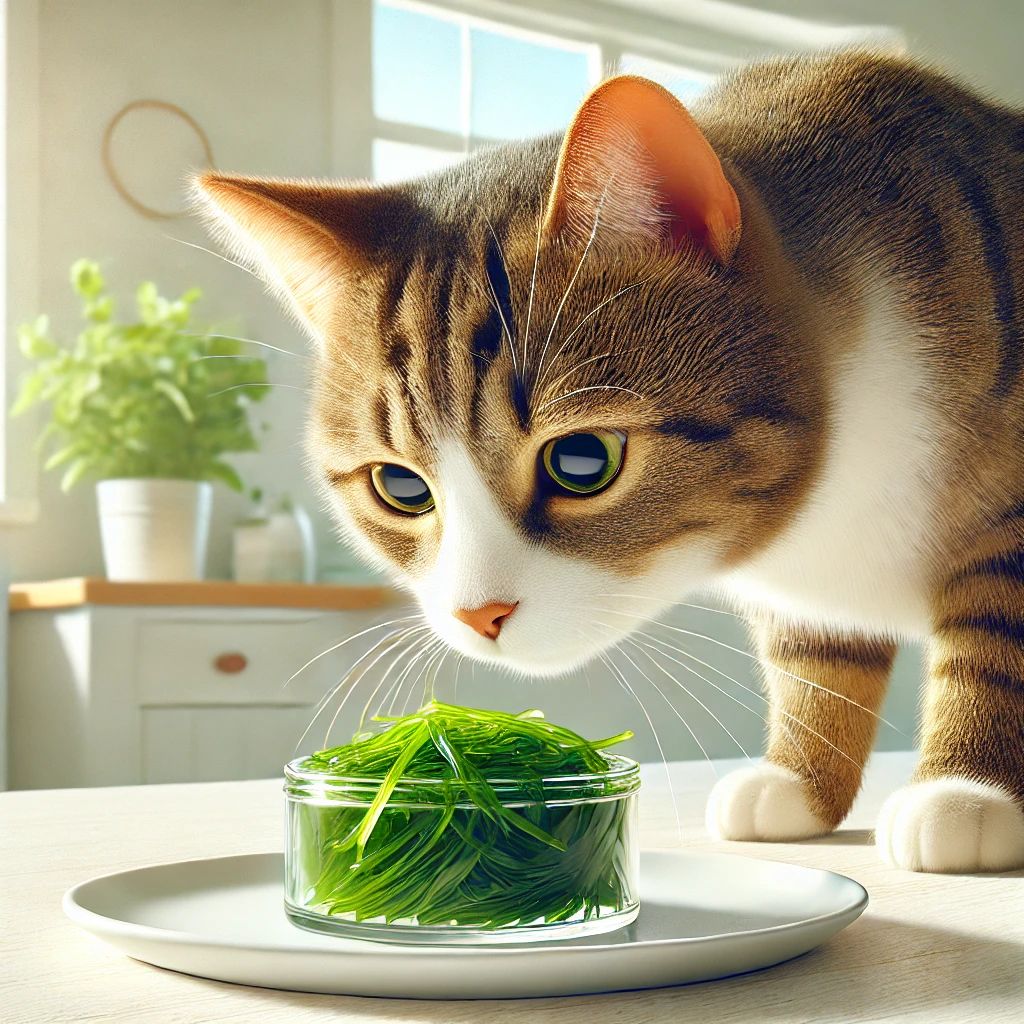Seaweed is a superfood for humans, offering a range of health benefits thanks to its nutrient-dense profile. But as a pet owner, you may wonder: Can cats safely eat seaweed? While it’s not a staple in feline diets, seaweed can be a safe and beneficial treat for your cat when served appropriately. This article covers the benefits, risks, and best practices for feeding seaweed to your feline friend.
Why Seaweed Could Be Good for Cats
Seaweed is packed with nutrients that may complement your cat’s diet. Some key components include:
- Iodine: Essential for thyroid function, in moderation.
- Fiber: Supports digestive health and prevents constipation.
- Vitamins (A, C, E, and K): Boost immunity and overall health.
- Antioxidants: Protect cells from free radicals, reducing inflammation.
While these nutrients are beneficial, it’s essential to remember that cats are obligate carnivores, requiring a diet primarily based on animal protein. The Feline Nutrition Foundation stresses the importance of balancing treats like seaweed with your cat’s regular meals. Furthermore, consult resources like the ASPCA’s guide to pet-safe foods to confirm that the seaweed you choose is free from harmful additives.
Health Benefits of Seaweed for Cats
When given in moderation, seaweed can provide the following benefits:
- Digestive Aid: Its high fiber content promotes healthy bowel movements and can ease minor digestive issues.
- Immune System Support: Antioxidants and vitamins in seaweed boost immunity and combat oxidative stress.
- Thyroid Regulation: Controlled amounts of iodine help maintain proper thyroid function, especially for cats with iodine deficiencies.
Potential Risks of Feeding Seaweed
While seaweed can be a healthy treat, it carries certain risks:
- Excess Iodine: Overfeeding can lead to thyroid imbalances, causing health problems.
- Salt and Additives: Many store-bought seaweed snacks contain salt, onion, or garlic—ingredients toxic to cats.
- Heavy Metal Contamination: Seaweed harvested from polluted waters can contain harmful substances like mercury or lead.
Choose plain, organic seaweed from reputable sources to minimize these risks. Always avoid seasoned varieties.
How to Feed Seaweed to Cats Safely
If you decide to include seaweed in your cat’s diet, follow these steps:
- Select the Right Type: Opt for plain, unseasoned seaweed like nori or kelp.
- Introduce Gradually: Start with small amounts and monitor for allergic reactions or digestive issues.
- Cut into Small Pieces: This prevents choking and makes the seaweed easier to digest.
The Veterinary Partner’s guide advises consulting your vet before introducing any new food to your pet’s diet.
Alternative Nutritional Supplements
If you’re hesitant about seaweed, consider these feline-friendly alternatives:
- Pumpkin: A fiber-rich option to support digestive health.
- Salmon Oil: Packed with Omega-3 fatty acids for coat and joint health.
- Vet-Approved Supplements: Formulated specifically for cats’ nutritional needs.
Frequently Asked Questions
1. Can cats eat dried seaweed?
Yes, but ensure it’s plain and free from added salt or spices.
2. Is seaweed safe for kittens?
It’s best to avoid feeding seaweed to kittens, as their digestive systems are more sensitive.
3. What are the signs of iodine overdose in cats?
Symptoms include lethargy, excessive thirst, and signs of thyroid dysfunction. Contact your veterinarian immediately if these occur.
Conclusion
Seaweed can be a healthy, occasional treat for cats when prepared and served appropriately. Its iodine, fiber, and antioxidants offer potential benefits, but moderation is key to preventing risks. Always consult your veterinarian before introducing seaweed—or any new food—into your cat’s diet to ensure it aligns with their unique nutritional requirements.
By following these guidelines, your feline friend can safely enjoy the occasional seaweed snack as part of a balanced, nutritious diet.
Read also: Are Orchids Poisonous to Cats?







